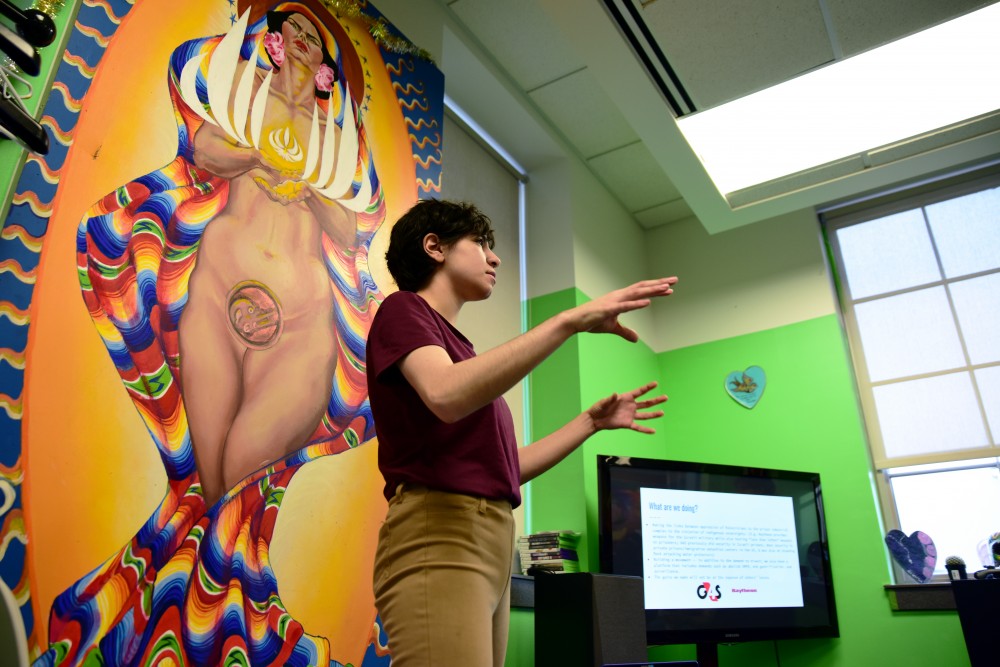The ninth annual National Students for Justice in Palestine conference, which will be hosted at the University of Minnesota in November, has received backlash from pro-Israel groups, who are calling on the University to condemn the conference.
StandWithUs, a pro-Israel advocacy group based in Los Angeles, launched a petition claiming the University has a responsibility to condemn events that “promote hatred, intolerance, and opposition to the free exchange of ideas.” SWU also claimed that “SJP has a long record of spreading hate, supporting violence, and violating the free speech rights of people they disagree with on campus.”
According to the SWU press release, each signature of the petition triggers an email to the University administration asking them to condemn the conference. The University’s Students Supporting Israel also launched a petition calling for President Joan Gabel to cancel the conference.
The theme for this year’s NSJP conference is titled “Beyond Struggle: From Roots to Branches Towards Liberation” and will explore topics relating to the growing visibility of Palestine in mainstream politics.
“We’re trying to really work toward addressing the growing visibility of Palestine in American political spaces, especially what that means as a solidarity group that is grassroots,” said Raphael Eissa, a member of the NSJP steering committee which organizes the annual conferences. “What does that mean for us as students … and how can we sort of transform the rhetoric and the language into something that is actionable?”
Eissa said responses like SWU’s are common. He said SWU’s opposition was “tame” compared with backlash from previous years.
Last year’s conference, held at the University of California, Los Angeles, was met with fierce opposition after its announcement. The Los Angeles City Council passed a resolution to call on UCLA to cancel the event, NSJP received a cease-and-desist letter from UCLA over the logo used to promote the conference and Zionist groups gathered to protest it. More than 500 people attended the 2018 conference.
“We always expect something,” said Reem Zaitoon, another member of the NSJP steering committee. According to Zaitoon, community volunteers at the conference will receive training on de-escalation in preparation for the three-day event.
“We’re walking on eggshells all the time, but that’s part of the work, and we’ve grown to accept it,” Eissa said.
Eissa began SJP organizing in his college years at the University of Georgia. A few weeks after organizing a walkout at a pro-Israel event at UGA, Eissa and others involved in the disruption found themselves on Canary Mission, a website claiming to document “people and groups that promote hatred of the USA, Israel and Jews on North American college campuses.”
Eissa said he expected this to happen. He knows many students who have been profiled as a result of their activism.
But for people who have family in Palestine, being profiled on the website is a real source of fear. According to Haaretz, a left-leaning Israeli newspaper, data from Canary Mission has been used by the Israeli government to ban activists from entering Israel.
Following the Boycott, Divestment and Sanctions campaign on the University of Minnesota campus in 2016, several pro-Palestine students were blacklisted on Canary Mission for supporting BDS, according to a University SJP member who requested anonymity to avoid being targeted by the website.
“If you so much as changed your profile picture to support the cause or were tagged in a specific location at the wrong time, that’s enough to land you on Canary Mission,” the source said.
Because SJP board members are frequent targets of Canary Mission, the University SJP chapter does not list its board members on the GopherLink roster in order to protect themselves from being profiled.
The threat of being denied entry to Palestine as a result of a potential profile on Canary Mission causes the source to be cautious with what she posts on social media.
“What really is unfortunate is that the Israeli government uses it and can use that to prevent you from seeing family in Palestine, so I think that’s a motivator to a lot of people to not be on the website,” she said.
The source, who has attended past NSJP conferences, said the annual event is a chance for pro-Palestine activists to learn from each other. “I think it’s an excellent opportunity for people to not only learn from each other but meet other people fighting for the same cause, because it can be sometimes isolating to work in one community and think that the same thing isn’t happening elsewhere.”







